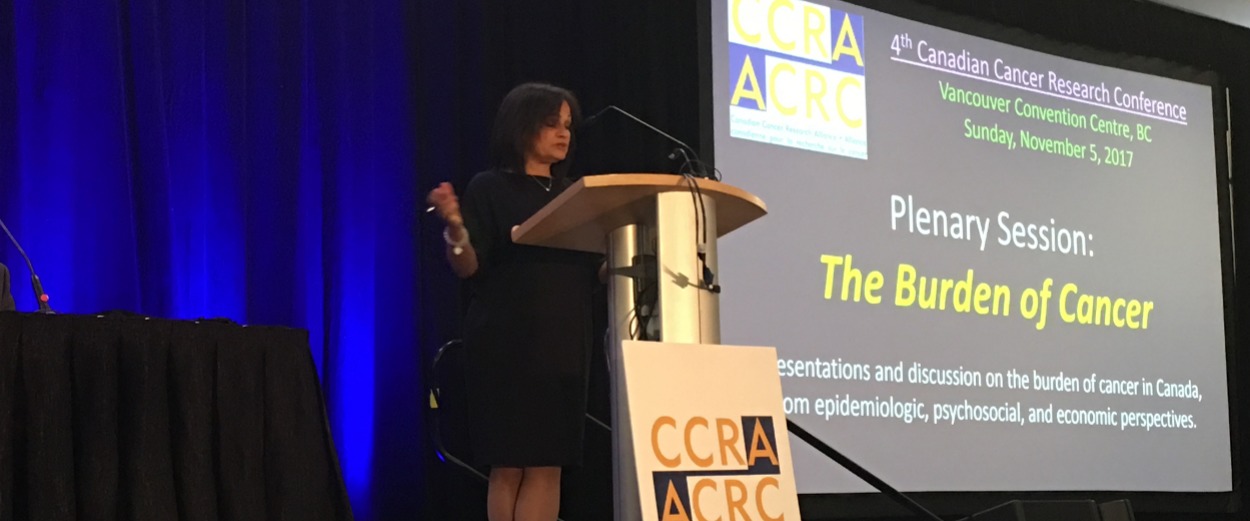By Cathy Ammendolea
This year I was honoured to participate as a patient representative on the steering committee of the Canadian Cancer Research Conference hosted by the Canadian Cancer Research Alliance at the beginning of November. As the CBCN Board Chair and a breast cancer patient myself, I had long followed the conference over the years and even attended the community forum hosted by CCRA in Montreal a few years ago. This year, as a member of the steering committee, I had the privilege of working in partnership with clinicians, researchers and other patient group leaders to develop and inform the conference program agenda.
A key highlight for me was witnessing the genuine commitment of the steering committee members towards ensuring meaningful patient involvement. From the very beginning of the planning stages for the conference, it was clear that the committee wanted to ensure that patients had a full stake in the program and were represented throughout all aspects of the conference. It is quite rare to see this type of dedication to meaningful patient engagement, particularly in the research setting.
The focus on patients extended even to the plenary settings, all of which featured a patient representative. I was pleased to be given the opportunity to co-moderate the opening plenary focused on the burden of cancer. The excellent presentations by Dr. Darren Brenner, Dr. Brian Kelly and Dr. Murray Krahn set the stage for the rest of the conference by examining the potential scale of cancer in Canada. This included the number of expected new cases of cancer, the psychological and social impact on patients and the economic impact. While the implications of the growing cancer burden are stark, the plenary also addressed the need to understand the cost-effectiveness of policies that can help us meet these challenges.
It was an incredible experience to be able to witness first-hand how the Canadian research community is working together to develop new insights and breakthroughs in cancer. While significant achievements have already been achieved, it is clear that continued collaboration is required to ensure that research breakthroughs are reaching patients where it is most needed. For example, the sessions on indigenous populations, metastasis and personalized cancer care, all reinforced the need to reconcile complex aspects of research with the expectations of patients. By working in partnership, patients and researchers can ensure that investments and innovation in research benefit all stakeholders and contribute to better cancer outcomes for all.
I want to sincerely thank the Canadian Cancer Research Alliance and the members of the Scientific Program Planning Committee for the wonderful opportunity to serve on the steering committee of the conference. This year’s conference pioneered a new model for engaging patients throughout the conference and I, for one, am looking forward to seeing the expanded contribution of patients at the next conference in 2019.







